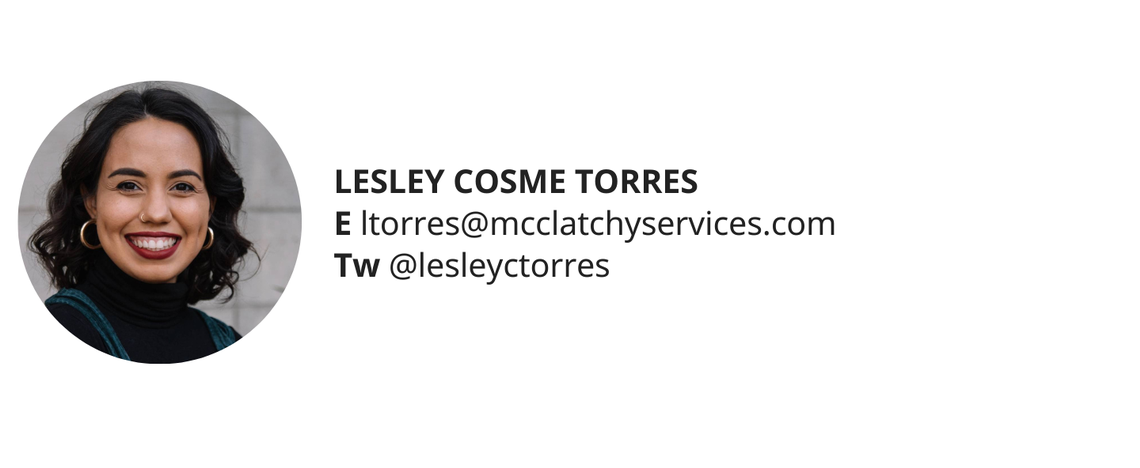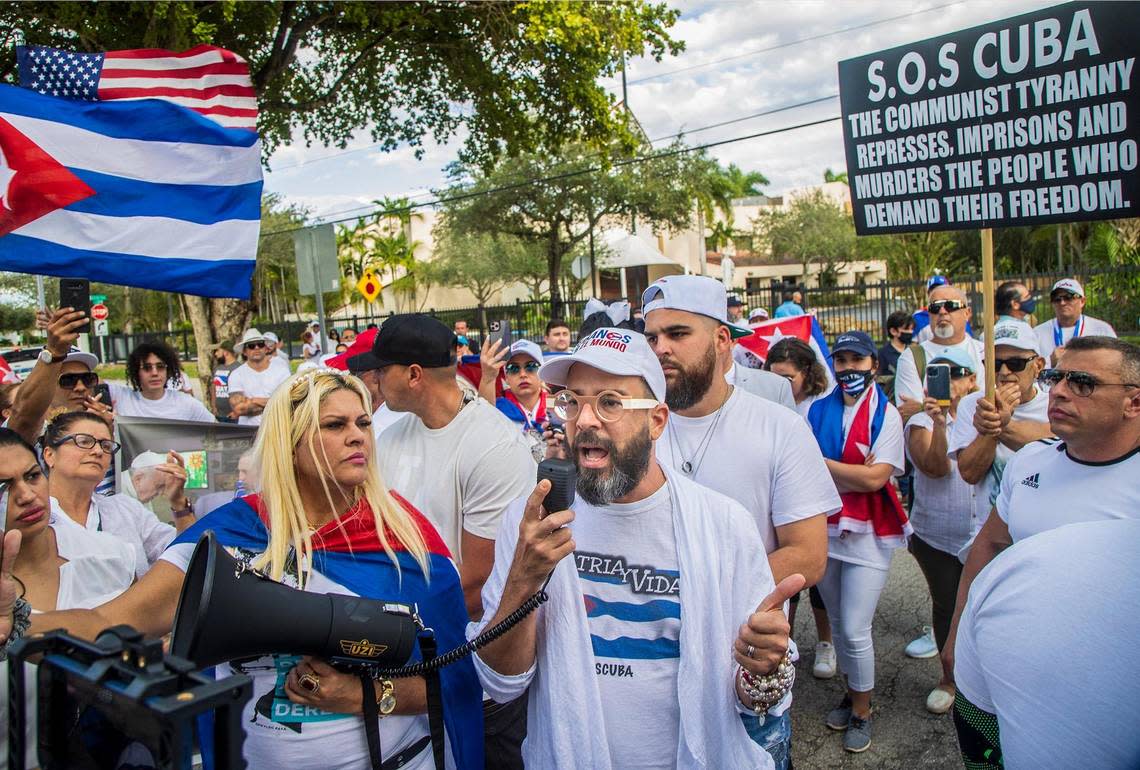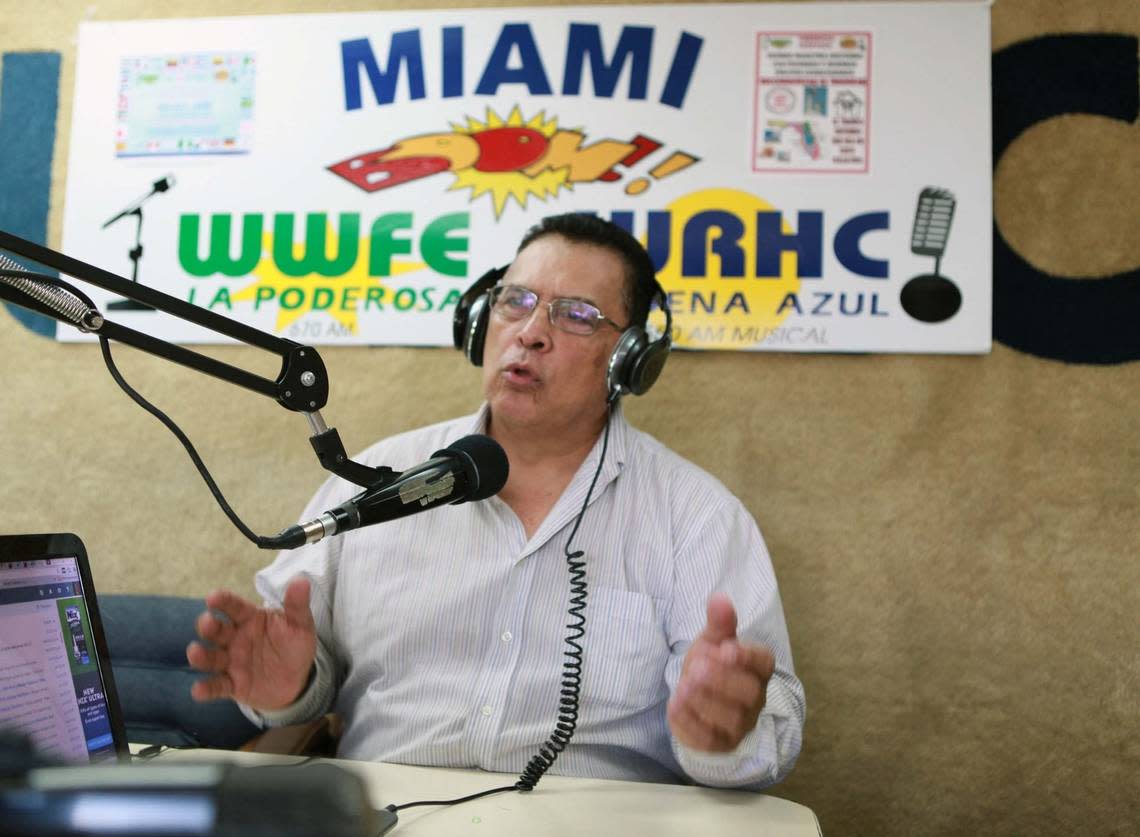Spanish misinformation: The impact of Rubio’s tweet plus the source of Cuba news
The latest on misinformation and disinformation on Spanish-language radio and social media this campaign season.
Good morning everyone! I hope your Friday’s going well.
Early voting for the midterms started this week and continues until Nov. 6. You can visit a nearby polling place from 7 a.m. to 7 p.m. to exercise your right to vote and make sure your voice is heard.
It’s Lesley Cosme Torres again, here with the latest on Spanish-language disinformation in South Florida elections.
This week I’m featuring stories about a canvasser who didn’t label his attack as politically motivated until Sen. Marco Rubio tweeted it was, the impact Miami’s Republican voters say Spanish-language disinformation will have on the midterms and a poll showing Republicans on track to hold gains with Hispanic voters and differences based on whether voters get their news in English or Spanish. Also, Salem Media group, a conservative media company, is buying La Poderosa and Cadena Azul.
A recent FIU poll found that Spanish-language social media and influencers on YouTube and various social media platforms have become the main source of news and information about Cuba among Cubans in Miami-Dade County.
In misinformation news, Reuters Fact Check, the social media verification unit of the global news agency, recently announced the release of Reuters Fact Check Spanish U.S. It’s a bot aimed at fighting misinformation. After scanning their QR code you can message them directly with your questions about false or misleading content.
As always, If you read or hear anything you find misleading on Spanish-language radio or on social media via WhatsApp, Telegram, Facebook or Twitter, email me.
Enjoy your weekend!
Lesley

GOP canvasser didn’t tell cops his brutal beating was political until Marco Rubio tweeted about it

When Christopher Monzon was first interviewed by police about his assault in Hialeah on Sunday, he didn’t mention it being politically motivated. It wasn’t until after Sen. Marco Rubio tweeted on Monday that one of his canvassers was attacked “by 4 animals who told him Republicans weren’t allowed in their neighborhood” that Monzon told police he believed politics may have played a role.
Also on Monday, a man who identified himself as the victim’s father went on Radio Mambí and said his son was attacked while campaigning for the Republican Party in a neighborhood in Hialeah and that he had just spoken to “Tallahassee” about what had happened after being up all night at the hospital.
Rubio has continued to tweet about the incident, criticizing the media’s coverage of Monzon’s ties to white nationalist group, League of the South, and his arrest for violent behavior at a protest against stripping the names of Confederate generals off Hollywood, Florida, streets.
“He didn’t mention it in the first interview. He did in the second,” Hialeah Police Department Sgt. José Torres told the Miami Herald about the attack. “We’re not going to say that the whole entire situation was politically motivated, but the guy was wearing a Marco Rubio shirt.”
Miami Republican voters agree media disinformation is a problem. But disagree on sources

Miami Herald reporter Grethel Aguila spoke to Miami voters about the impact they think Spanish-language disinformation will have on the upcoming election.
Grethel spoke to Xiomara Rodriguez outside John F. Kennedy Library in Hialeah. She said she was a Democrat up until the last election and is now supporting Republican candidates. She said she changed her political affiliation partly because of media coverage of politics. Now, Rodriguez said she gets her news from Instagram and WhatsApp groups.
“[In media], Republicans are always the bad ones, and Democrats are always the ones that should be in government,” she said in Spanish. “This is a free country, and [they] need to let the public vote … not constantly tell you, in the news, that you need to vote for a Democrat or a Republican. That is a personal opinion. No one needs to tell you the same thing from the moment you wake up until you go to sleep,” Rodriguez said.
FIU poll finds that social media and influencers are Cuban Americans’ main source of news about Cuba

A recent FIU poll found that Spanish-language social media and influencers on YouTube and various social media platforms have become the main source of news and information about Cuba among Cubans in Miami-Dade County.
““They are using these [influencers] as news sources and there is no accountability here,” poll director Guillermo Grenier, an FIU sociology professor, said to Herald reporter Andres Viglucci. “These are entertainers. They want the clicks, the YouTube views. It’s laughable to consider them as news sources. Yet when it comes to information on Cuba, that’s who these folks get it from.”
WPA Intelligence and Visto Media poll on Hispanic voters leaning more Republican

WPA Intelligence, a company which conducts survey research for conservative candidates and organizations, along with Visto Media, a public relations firm founded by Giancarlo Sopo, who directed Hispanic advertising for former President Donald Trump, released a poll that found Republicans are “on track for one of their best midterm election performances in decades with Hispanics.” Their poll surveyed 1,086 Hispanic voters. Some key points from the poll on why Hispanic voters are leaning more Republican this election cycle include concerns over inflation, the economy, crime, taxes, government spending and immigration.
The poll also revealed that Hispanic voters’ political views and ideologies vary significantly depending on whether or not they consume English or Spanish news. Of the Hispanic voters who get their news in English, 34% identify as conservative, 25% say they’re liberal and 39% say they’re moderate. And out of those who get their news from Spanish-language news sources, 10% say they’re conservative, 45% say they’re liberal and 39% say they’re moderate.
“Republicans are on track to maintain their 2020 gains with Hispanic voters, who are clearly frustrated with an economy they see as leaving them behind. Improving upon 2020 won’t be easy with nearly 40% of Hispanics living in California, Illinois, New York, and New Jersey, but as this poll shows, the GOP can improve, especially with Spanish-dominant Latinos,” said WPA Intelligence partner Bryon Allen.
Conservative Christian media company buys Miami’s La Poderosa, Cadena Azul

Salem Media Group, a media company that owns dozens of conservative and Christian radio stations and publications, announced last week that pending FCC approval it would purchase Miami’s La Poderosa and Cadena Azul. Salem Media said it would continue broadcasting in Spanish and will be adding “leading Spanish-speaking voices of freedom.”
When I called La Poderosa, a spokesperson told me there were no plans to add new programming or new hosts. The deal was announced a month after the death of La Poderosa and Cadena Azul president Jorge Rodríguez Sr., who was in favor of the deal.
“At a time when voices of freedom in Spanish-language programming are threatened, it is our duty to step up and serve the South Florida audience,” Salem Media Media Executive Chairman Edward Atsinger said in a press release. This comes after news of Americano Media, a new conservative media company, shifting to Miami radio on WAXY-790 AM, to create Radio Libre.
Some experts told me they were wary of Salem’s entry into Miami’s Spanish-language media market. Eduardo Gamarra, a politics and international relations professor at FIU said that he’s concerned that Salem is “linked to the Christian right … so the station will probably have that very strong ideological message.”
This newsletter is part of a project on misinformation in Spanish-language media by the Miami Herald, el Nuevo Herald and researchers at Florida International University. It is funded by Journalism Funding Partners, which received support from the Knight Disinformation Fund at The Miami Foundation. The Miami Herald retains editorial control of the content.
